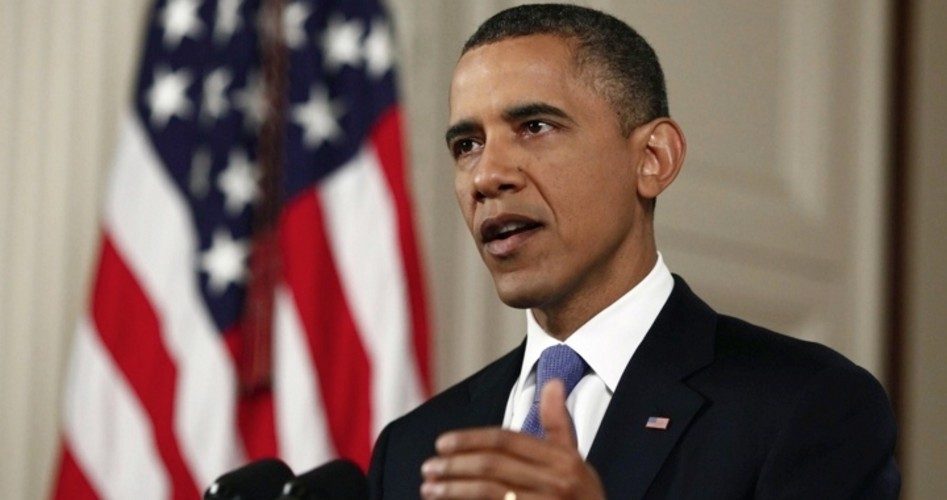
Thanks to the Heritage Foundation’s report on Taxmageddon, taxpayers became aware of the $500 billion of new taxes the government is expected to extract from the economy starting the first of the year. What they didn’t learn is how devious and pernicious some of those taxes are because they are buried so deeply in the ObamaCare monstrosity, otherwise known perversely as the Patient Protection and Affordable Care Act. The Orwellian title is exactly the opposite: Patients won’t be protected and medical care will become less affordable.
And taxpayers will pay more.
Taxmageddon’s total extraction will be drawn from the arm of the taxpayer using several different blood collection needles, to wit:
• The expiration of the so-called “Bush tax cuts” enacted in 2001 and 2003 and extended to December 31, 2012 will draw $165 billion out of the economy
• The renewal of the regular payroll tax, back to 6.2% from the temporary 4.2% extended to December, will draw another $125 billion out of the economy
• The expiration of the Alternative Minimum Tax (AMT) “patch” designed to protect middle-class taxpayers from this “wealthy-only” tax will now apply to them as well and will extract another $119 billion
• The expiration of numerous other tax cuts, tax cut extenders, the reimposition of the “death tax” and the elimination of 100% “expensing” for business investment will withdraw an additional $51 billion, and
• The imposition of five of the thirteen new taxes imposed by Obamacare effective January 1, 2013 will be responsible for the balance.
Grand total: $494 billion, or almost four percent of the country’s gross domestic product to be extracted and transferred to the federal government.
Two of those five ObamaCare taxes are especially onerous: the increase in the Hospital Insurance (HI) portion of the payroll tax that employers are required to send to Washington, and the application of that increase not only to wages but to investment income as well. As Curtis Dubay at Heritage explains:
The HI portion of the payroll tax raises the current rate applied to workers’ wages and salaries from 1.45 percent to 2.35 percent for incomes over $200,000 a year ($250,000 for married filers).
This brings the total HI tax on wages and salaries to 3.8 percent for incomes over $200,000 when including the 1.45 percent portion of the tax paid by employers on their workers’ behalf.
But that’s just the beginning. That 3.8 percent tax will now apply to investment income, such as capital gains, dividends, rents, and royalties. This is the first time in history that a payroll tax is being extended to apply outside of wages and salaries, and, according to Dubay, “breaks another long-held precedent that the revenue that payroll taxes raise goes only to programs that Congress created the tax to fund.”
It gets worse. After the first of the year, dividends will be treated as ordinary income and taxed as such. That means that dividends will be taxed, after adding the new 3.8 percent levy, at 43.4 percent.
This will further slow the economy, as it will reduce the net take-home pay of those relying on dividends to supplement their retirement and Social Security benefits. It will also hurt small businesses the most and further reduce any incentive their owners might have in expanding and hiring. As Dubay notes:
The higher tax rate on wages and salaries will cause workers to cut back on their hours, which will slow economic growth. It will also deter job creation at small businesses. The income of certain small businesses (sole proprietorships) is wage and salary income to the owner. As both employee and employer, the owner therefore pays the entire newly increased 3.8 percent HI tax rate.
With more of the owner’s — and therefore the business’s — income taken by higher taxes, the owner will have fewer resources to invest back into the business to create jobs.
There is one bright spot in Heritage’s analysis: In the past Congress has managed, always at the last minute, to kick the can down the road. In December 2010, Congress decided to push off the expiring Bush tax cuts for another two years, while in late 2011 it decided to extend the payroll tax cuts for another year.
This being an election year, with the new Congress not being seated until after the first of the New Year, it’s likely that the lame-duck Congress sitting in December will do the expedient thing and put off the day of reckoning once again.
Photo: President Barack Obama speaks in the East Room of the White House in Washington, June 28, 2012, after the Supreme Court ruled on his healthcare legislation: AP Images



